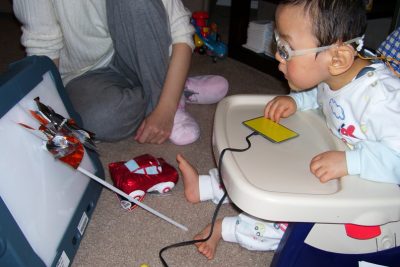The Extended Care Health Option (ECHO) is a program offered through TRICARE, the military health care system.
ECHO may help some military families who have a family member with special needs. ECHO focuses on integrated sets of services and supplies beyond those available through TRICARE programs. Services are intended to reduce the disabling effects of a beneficiary’s condition. ECHO is only available as a supplement to TRICARE programs. If services or supplies are available through a beneficiary’s TRICARE plan, they won’t be covered under ECHO.
NOTE: if a family is also trying to access Medicaid services, ECHO pays first, and Medicaid is the secondary payer.
WHO QUALIFIES FOR ECHO? People who experience:
- Moderate or severe intellectual disability
- Serious physical disability
- Any other serious disability that creates a significant impairment in a major life activity
- Condition that causes the beneficiary to be homebound
- Condition in an infant that precedes a diagnosis of physical or intellectual disability
- Disabilities affecting more than one body system
ADHD and learning disorders are excluded from ECHO benefits
Autism is no longer covered through ECHO. Instead, individuals with Autism can receive
Applied Behavior Analysis (ABA) services through the TRICARE Autism Care Demonstration, a program scheduled to run until Dec. 31, 2023.
WHICH MILITARY FAMILIES ARE ELIGIBLE FOR ECHO?
- Families of active-duty (full-time) military personnel (“sponsors”)
- Family members of activated National Guard/Reserve members.
- Family members who are covered under a Transitional Assistance Management Program, which provides benefits while a service member transitions to civilian life
- Children or spouses of former service members who qualify for the Transitional Compensation Program which provides benefits for certain cases of abuse
- Family members of deceased active duty members while they are considered “transitional survivors”. The transitional period lasts three years for a spouse; children remain beneficiaries until they age out of TRICARE eligibility (age 21 or age 23 if enrolled in a full-time course of study at an approved institution of higher learning and if the sponsor provides over 50 percent of the financial support).
CHILDREN AND CONTINUED ECHO BENEFITS:
A child is considered to be the biological, adopted, and/or stepchild and/or spouse’s child resident in the sponsor’s home or for whom the sponsor has a legal obligation.
Children may remain eligible for ECHO benefits beyond the usual TRICARE eligibility age limit (age 21 or age 23 if enrolled in a full-time course of study at an approved institution of higher learning and if the sponsor provides over 50 percent of the financial support) provided all of the following are true:
- The sponsor remains on active duty
- The child is incapable of self-support because of a mental or physical incapacity that occurs prior to the loss of eligibility
- The sponsor is responsible for over 50 percent of the child’s financial support
ENROLLMENT PREREQUISITES FOR ECHO:
- Family information must be up-to-date in DEERS (Defense Eligibility and Enrollment Reporting System).
- The family member to receive services must be a TRICARE beneficiary.
- The family must be enrolled in the Exceptional Family Member Program (EFMP) if the military member is active duty and in any branch of service other than the Coast Guard.
- National Guard and Reservist family members do not need to enroll in EFMP.
- The family must register to receive ECHO benefits through the regional TRICARE office
PROCESS:
- The TRICARE regional contractor, in concert with the family’s primary care provider, will determine any evaluations that may be needed to qualify for ECHO services and refer the family to necessary specialists for the evaluations.
- Eligible family members may be granted provisional ECHO status for a period of no more than ninety days as they wait for their application to be approved.
- If the sponsor is reassigned, the family member must get new ECHO benefit authorizations before receiving services at the new location. Families should contact their regional contractor, local Military Treatment Facility, overseas Transition Assistance Officer or ECHO case manager before they move to ensure a smooth transition. (The EHHC benefit is only available in the United States, District of Columbia, Puerto Rico, the U.S. Virgin Islands and Guam.)
ECHO SERVICES MAY INCLUDE:
- Rehabilitative services
- Assistive services
- Durable equipment
- Up to 16 hours a month of respite care
- Incontinence supplies
- Training to use assistive technology devices
- Institutional care when a residential environment is required
- Transportation to and from institution in certain circumstances
- ECHO Home Health Care (EHHC) (limited to the 50 United States, the District of Columbia, Guam, Puerto Rico, and the U.S. Virgin Islands. More info on EHHC is available on the TRICARE website at: http://www.tricare.mil/Plans/SpecialPrograms/ECHO/EHHC.aspx

